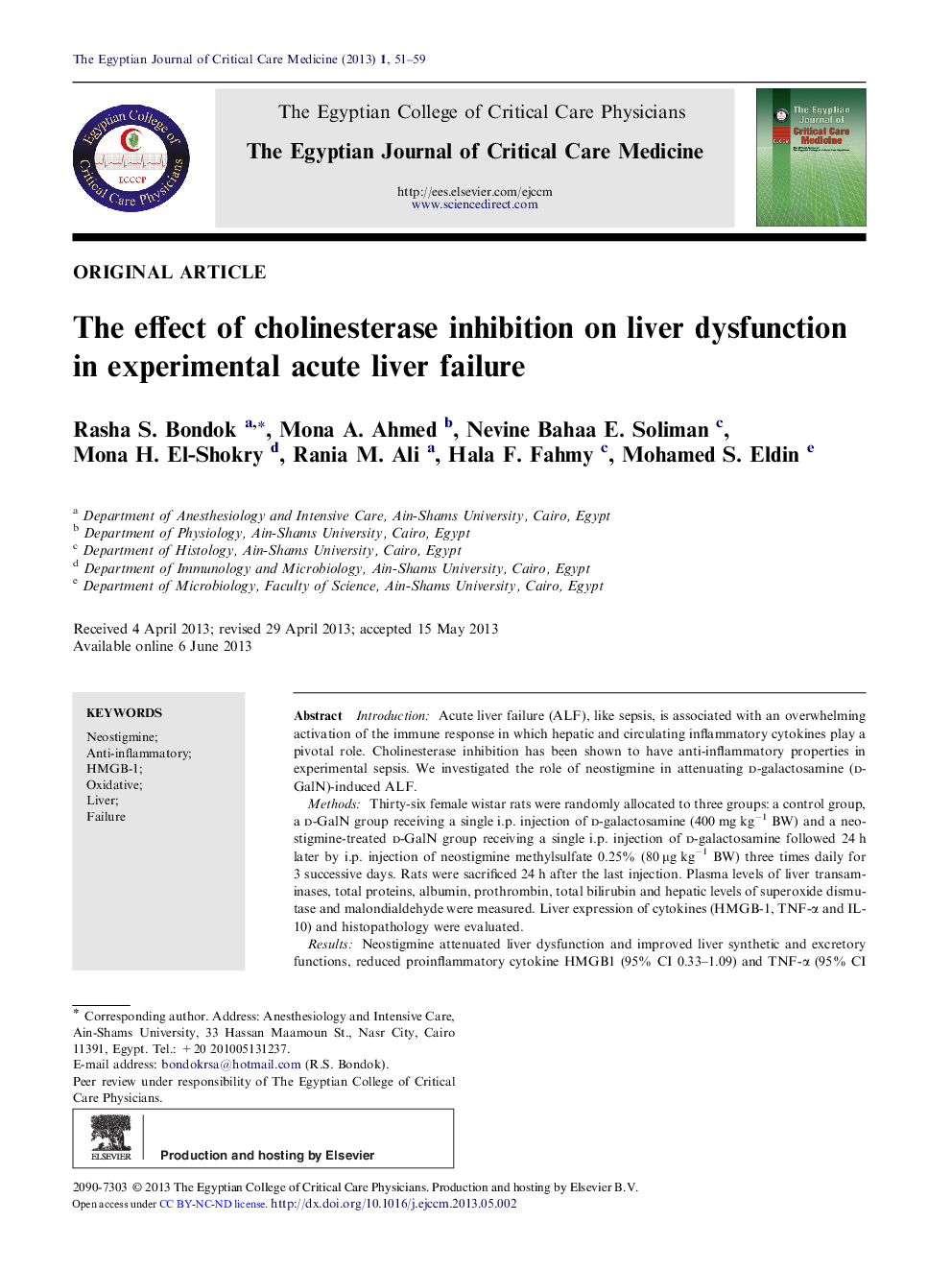| Article ID | Journal | Published Year | Pages | File Type |
|---|---|---|---|---|
| 2910913 | The Egyptian Journal of Critical Care Medicine | 2013 | 9 Pages |
IntroductionAcute liver failure (ALF), like sepsis, is associated with an overwhelming activation of the immune response in which hepatic and circulating inflammatory cytokines play a pivotal role. Cholinesterase inhibition has been shown to have anti-inflammatory properties in experimental sepsis. We investigated the role of neostigmine in attenuating d-galactosamine (d-GalN)-induced ALF.MethodsThirty-six female wistar rats were randomly allocated to three groups: a control group, a d-GalN group receiving a single i.p. injection of d-galactosamine (400 mg kg−1 BW) and a neostigmine-treated d-GalN group receiving a single i.p. injection of d-galactosamine followed 24 h later by i.p. injection of neostigmine methylsulfate 0.25% (80 μg kg−1 BW) three times daily for 3 successive days. Rats were sacrificed 24 h after the last injection. Plasma levels of liver transaminases, total proteins, albumin, prothrombin, total bilirubin and hepatic levels of superoxide dismutase and malondialdehyde were measured. Liver expression of cytokines (HMGB-1, TNF-α and IL-10) and histopathology were evaluated.ResultsNeostigmine attenuated liver dysfunction and improved liver synthetic and excretory functions, reduced proinflammatory cytokine HMGB1 (95% CI 0.33–1.09) and TNF-α (95% CI 1.26–2.06) expression compared to d-GalN group (95% CI 2.67–4.73 and 7.33–14.53, respectively, P < 0.001) and increased expression of the anti-inflammatory cytokine IL-10 in liver tissue (95% CI 2.49–4.17 vs 0.04–0.21 in d-GalN group, P < 0.001). Neostigmine also significantly increased antioxidant level, and decreased oxidative burden caused by d-GaIN.ConclusionNeostigmine improved liver function in a rat ALF model through an anti-inflammatory activity.
